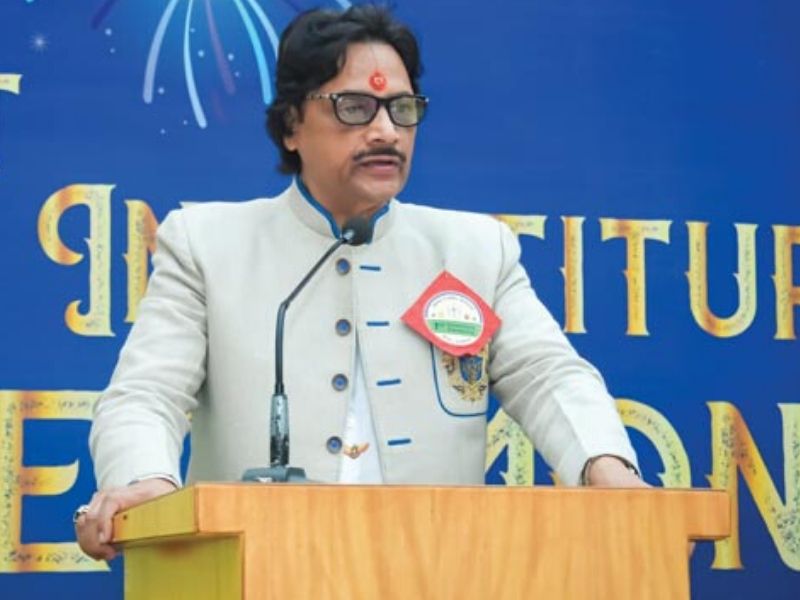 Hari Mohan Gupta
Hari Mohan Gupta
Chairman, Jagran Social Welfare Society
Publisher-editor of the Hindi language daily Daink Jagran (Bhopal edition), Hari Mohan Gupta is chairman of the Jagran Social Welfare Society (JSWS), which has promoted four Delhi Public Schools (DPS) in Madhya Pradesh (Bhopal and Indore) and the state-of-the-art Jagran Lakecity University, Bhopal. Together these institutions have 14,000 students on their muster rolls.
Jagran Group of Institutions response to the Covid-19 challenge.
Since January, we have been tracking the Covid-19 outbreak on a daily basis, preparing for various possible outcomes. In March, we started providing online education, guidance and regular updates to all our students, faculty and staff. Therefore, I am confident that our four DPS schools, Shikshan Kendras and Jagran Lakecity University will continue to provide high-quality teaching-learning to all students. Our students too, have responded enthusiastically and averaging 90 percent attendance in our virtual classrooms. JLU’s semester exams were also conducted smoothly.
Major challenges confronting Indian education in the Covid era.
The difficult challenges are not physical but emotional. The faculty-student relationship is constrained with face-to-face interaction becoming rare. Striking a balance between conventional and online education is posing a formidable problem to all educators.
The second challenge is to prepare faculty and students to adapt to ICT (information and communication technologies)-enabled learning. Capacity building is an urgent imperative.
Moreover, institutional managements will have to devise new fees and financial models for private schools and universities.
On fees waiver/deferment circulars to private school managements.
My reading of the circulars issued by the Madhya Pradesh government is that fees have not been waived, only payment deadlines relaxed. Regular classes are being held online, teachers are working full-time, and therefore their salaries need to be paid on time. None of our schools or university are forcing parents to pay their children’s fees right away. Deadlines have been extended already and in genuine cases, special arrangements are being made for parents. But at the same time, we are advising parents who can pay, should pay.
What are your proposals for reforming higher education in India?
Demand for higher education has increased dramatically in recent years in India. Enrolment in higher education institutions has risen from 10 million in 2000 to 23 million in 2013 and 36 million in 2017-18.
The major goals of the higher education system should be affirmative action for the underprivileged and inclusive access to higher education for all; financial aid/support to students from low-income households; autonomy for private universities with good track records, particularly for technical and vocational education institutions.
At the policy level, greater coordination between the Union HRD ministry and its supervisory bodies such as UGC, AICTE, NAAC etc is necessary for effective policy implementation. The proposals made for higher education reform in the draft National Education Policy are very constructive – especially the committee’s proposals to encourage multidisciplinary education and develop research capabilities. They should be heeded by the Central government.
What are your future plans?
We are focused on our mission of making quality education more accessible and affordable, so many more students can pursue their dream careers. It is a mission we believe, will help make the world a better place. In JSWS, we have dedicated ourselves to build human capital for our country and endow the world with beautiful minds. Because when students succeed, countries prosper and societies benefit.



























